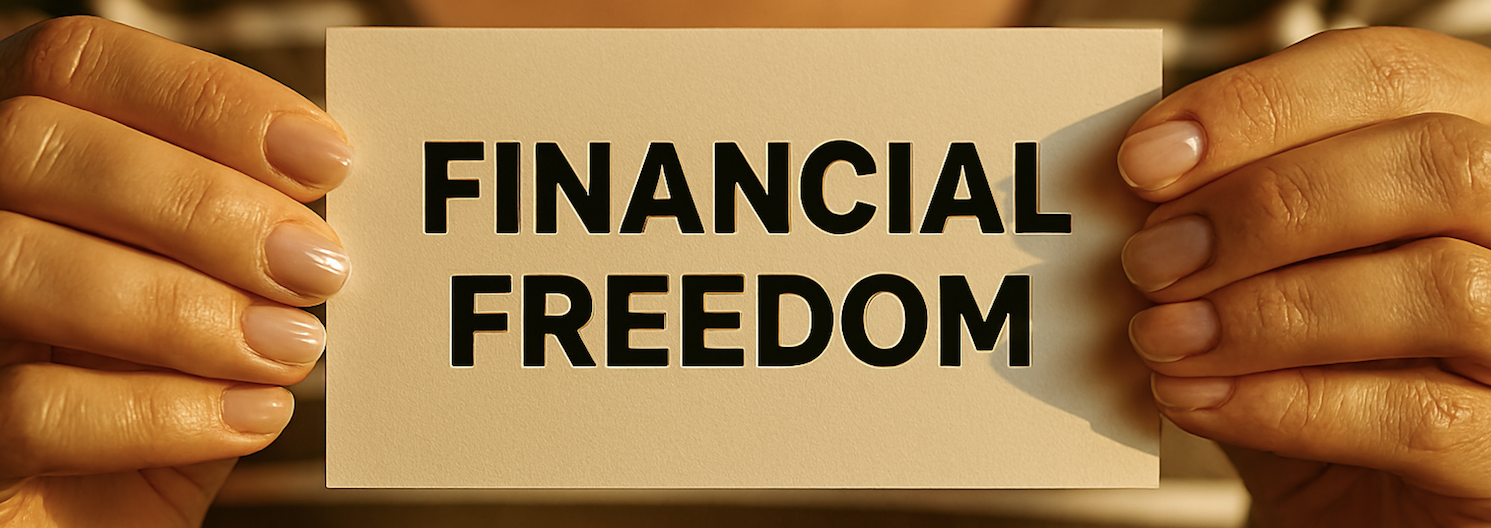
True financial freedom is more than having money in the bank. It means having options, resilience, and multiple ways your life supports itself (not just one). Below are core ideas and strategies you can start using now. Over time, you can deepen each one.
Figure out how much you need (not want) to cover food, shelter, tools, and essentials.
Track your current income and expenses honestly.
Build a small emergency fund so you don’t get derailed when something breaks.
Relying on one job is risky. Even a home-based job is just one income stream. Layer in multiple paths:
Remote work or freelance services — writing, design, consulting, virtual assistant tasks.
Trading & investing — stocks, commodities, or cryptocurrencies, with caution (these are volatile).
Precious metals & store of value — keeping small reserves or buying when cheap in gold, silver, barterable goods.
Tools and physical assets — owning equipment (woodworking, farming, small manufacturing) that lets you produce and sell.
Each stream doesn’t have to be huge. Even small ones add up.
This is where homestead or land life offers real advantage:
Gardening & food production — growing vegetables, fruits, herbs to reduce food bills and possibly sell surplus.
Raising animals — chickens, goats, bees, etc., for eggs, milk, honey, or meat.
Foraging & wildcrafting — identifying native plants or herbs to use or sell.
Natural remedies & herbal products — learning to make tinctures, salves, soaps, etc.
These not only cut your costs, they add tradeable goods.
Rather than buying, learn to make what you need, or make items to sell:
Woodworking, metalworking, sewing, leatherwork, candle-making, soap-making, fiber arts
Repairing and repurposing items instead of discarding
Teaching or coaching skills you already have to others
These skills become “tools” of independence.
How you manage and allocate money matters as much as how much you make:
Use cash or physical assets when possible — this gives you control and avoids fees, taxes, or loss of access if banking systems are disrupted.
Keep a portion of your savings in non-correlated assets (assets that don’t move in sync with the stock market), like precious metals or land.
If you use crypto or trading, don't overexpose yourself — treat that as one piece of your portfolio, not your only support.
Reinvest profits wisely — don’t spend every gain. Let growth compound.
Depend on systems that run even when you don’t actively manage:
A garden that regenerates (perennial plants, correct soil, companion planting)
Passive income streams (e.g. dividend-producing assets, small royalties, or digital products)
Standard processes for production, orders, deliveries
Then you can step back rather than always being “on.”
Financial freedom isn’t isolation:
Build ties with local producers, artisans, and neighbors.
Trade goods and services (barter) — you might raise eggs, someone else does carpentry, you swap.
Participate in local markets, co-ops, farmer’s networks.
Share tools, bulk-buy inputs, share knowledge.
Things change—resources, laws, technologies:
Read, experiment, test small before scaling.
Stay aware of new markets, alternative currencies, or local demand.
Track what works, drop what doesn’t, pivot when necessary.
Avoid debt if possible; when you use credit, use it with strategy.
Choose quality over endless “cheap stuff.”
Keep integrity: honor agreements, deliver quality goods or services.
Be patient—freedom comes with steady, consistent effort, not overnight.